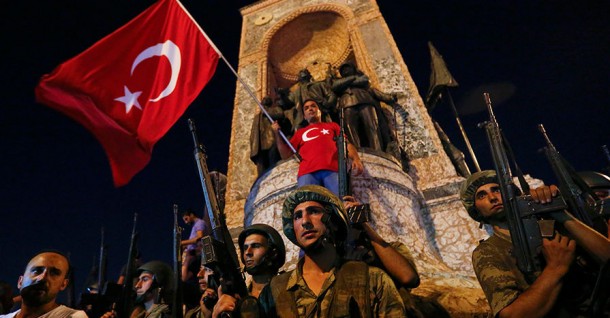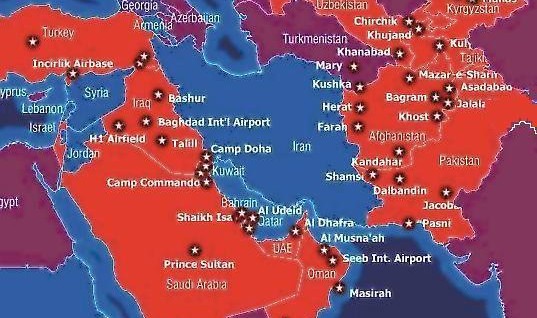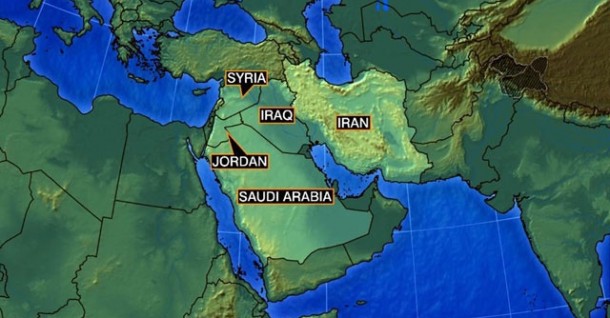Not so long ago, a number of international and Russian outlets started applying a term of “federalization” in regard to Syria. Before, this term had been using in a context of processes in Ukraine, where crisis of interrelation between the center and some regions in the south-east of the state had taken place.
In March 2016, Syrian Kurds announced a probability of Syrian Arab Republic federalization, and even held some events declaring willingness to live within syrian state’s borders as an authonomy. Against this scenario official Damascus and opposition groups spoke out.
The irony is that on example of Syria we find a duplication of federalization of another Middle East country that faces today a risk of its collapse. This is Iraq after the 2003 year.
***
Following the overthrow of Saddam Hussein, Iraq is no more a sovereign state, de facto. Some might suggest that cancellation of a dictatorship would support holding free elections, and that international military contingent would ensure a success of the democratic transition. But here, the question of Iraq’s destiny was likely centered around sensible (i.e. convenient) distribution of powers and economic benefits between ethnic groups and confessions. Exactly the same way the Iraqi society fragmentized after the nation-state collapse.
Thanks to media leaks in 2000s, it became known that the plan to divide Iraq existed even before the invention. The plan was prepared by the American strategists, but never realized. The plan considered appearing new Shia and Kurds states instead of Iraq. The future of Sunnis, though, was solved by transferring them to Jordan.
Effective solution of the Iraqi problem was very important for the administration of George W. Bush. Unprecedented and unjustified toppling of the sovereign state government tainted enough the reputation of the USA, more negative, though, was provoked by the failure of occupying powers to establish an order in the ruined state.
There were decisions options. In 2006, The New York Times published an article named Unity Through Autonomy in Iraq authored by two authoritative politicians. One of them was a senator (and in the future a vice-president) J. Biden, the second one was Leslie H. Gelb, President Emeritus of the Council on Foreign Relations. The article not only criticized the Bush administration that according to authors lacked strategic vision of Iraq’s future and as the result simply planned to hand the Iraqi tangle to the next US President. Also, the article considered possibility of establishment of three autonomies in Iraq – Kurdish, Shia and Sunni – as a condition for stabilization of the state. Bosnia and Herzegovina, the federation appeared after the collapse of multinational Yugoslavia and civil war, was held up as a successful historical model of state for Bosnians, Croats and Serbs.
Furthermore, the new Constitution of Iraq supported possibility of creation and coexistence of autonomies. Biden and his co-author wrote: “Kurdish, Sunni and Shia regions will have their own administrations and be able to promulgate local laws and maintain local security. The central government will control frontiers, be in charge of defence, international issues and oil income distribution.” The authors fairly noticed that after the overthrow of Saddam Sunnis had become the most suffered community in Iraq. Indeed, Kurds had obtained own devolution max in 2005, and Shias, being a majority, de facto had holden levers of power. Sunni minority could be engaged to equal right participation in the federal state by devoting to Sunnis regions 20% of oil income.
***
The ideas stated in the article formed the basis of the amendment adopted by the United States Senate in September 2007. Thus, Washington supported creation a federal governmental system in Iraq and formation of federal regions. Biden had announced that federalization does not mean division of the state, but only represents a form of its preservation.
However, critics had supposed that federalization is an attempt to camouflage the factual dissolution. The decision of the Senate had been criticized both by Arab states and Iraqis. Surprising for Biden even the U.S. Embassy in Baghdad had challenged his initiative. Only Kurds and the President of Iraq J. Talabani (of Kurdish descent) had positively assessed Biden’s initiative.
The decision of the Senate had not supported stabilization of Iraq. There is an opinion that real federalization had never been realized. Basic contradictions between major ethnoconfessional groups had never been dissolved, and the US military forces kept on being the main power that retained the unity of the country. After withdrawal of occupying forces in 2011, Iraq was in condition of half-disintegration suffering from terrorist attacks and political squabbles at the highest level. There seemed that the country is doomed. The uprising of ISIL became the result of despondency of Sunnis.
***
Since 2011, the civil war in the neighbour Syria that seemed to be an oasis in comparison with Iraq posed the same problems – preservation of statehood. As in the case of Iraq Kurds more than anyone else stand for federalization of Syria; the supporters of official Damascus and struggling with each other opposition clamour against this initiative. They afraid that creation of Kurdish autonomy in Syria might be a step towards the independent Kurdish state. Should that be the case Syria will never be the same anymore. However, Kurds themselves hold up as an example the autonomy of Iraqi Kurdistan that maintains a formal loyalty to Baghdad and has broad rights and powers in Iraq.
The situation, though, is not simple as that. There are disputed territories, and Arabs and Kurds hardly find consensus around them. Moreover, the leader of Iraqi Kurdistan M. Barzani announced referendum in 2016 on independence that might cause the end of period of Kurds citizenship in Iraq. And even if one images an emergence of a number of Kurdish states in the Middle East, there is no escaping from problems related with relations between ethnoconfessional groups in Syria and Iraq, staying on different sides of the civil war amid destruction of government institutions.
Here, neither federalization nor the harder variant of territorial separation is able to become a universal remedy. The idea of territories separation by ethnoconfessional attributes and granting independence or autonomies might be a good decision at first sight. And even if parties agree on separation of territories the questions of frontiers and possession of territories will immediately appear. As the result this will lead to hardening of the conflict.
It is hard to divide territories in such a way that every party satisfies as it is difficult to find a state in the Middle East that do not have territorial claims against its neighbour. And how to divide entrenched states? Especially states where ethnoconsessional groups are living cheek by jowl with each other as it is in many states in the Middle East including Iraq and Syria.
As a rule, propositions on federalization are promoted by external powers. We can see how the question of partition of the Syrian Arab Republic in recent months discussed actively among representatives of great powers. It is, however, enough take a glance at mosaic ethnoconfessional picture of Syria to understand that partition of the state or its autonomization will be hindered and provoke new conflicts. The question is not only about territories, but strategic communications, oil fields and other important economic infrastructure, over which fierce debates and conflicts occurred all the time. An opinion on engaging of external powers in order to hold responsibility of decision making amid opposing parties had crossed a redline and not ready to hold negotiations any more can be heard quite often. But not always a third party is able to offer the best solution even if it is unbiased international organization. The historical example of partition of Palestine by the UN in 1947 might be an example of it. The result had provoked series of Arab-Israeli conflicts.
***
But should there be an alternative? If partition or federalization are not the best ways and the former structure is not working anymore then what is left to much-suffering people of Iraq and Syria? One of possible solutions is Lebanese model where the power is shared between religious communities. Probably, it would be well to start discussing this kind of form of government in Syria, because it is hard to believe that the idea would be accepted at once. All the more so as this system had also faltered and had not managed to prevent a civil war in the mid of 1970-s. But nowadays the system is one of examples of rational solving an issue of power sharing in policonfessional and ethnically diverse society.
Of course, the Lebanese example is not perfect, but it reflects the existing trends more realistic in region where religious identity plays hugely more important role than in the past and considers existing and cooperation different communities within one state.
Gumer Isayev, PhD in Politics
Muslim Politic
![Электронный журнал [Электронный журнал]](/magazine.static/magazine-front.jpg)







